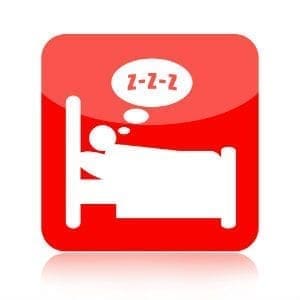 The hospitality industry is known as a highly customer-centered business and accumulates large amounts of customer data from central reservation systems (CRS), property management system (PMS), point-of-sale (POS), and guest loyalty program databases. Therefore, data mining application can play a huge role in the hospitality industry by assisting managers formulate marketing strategies, enhance guest experiences, increase retention and loyalty and ultimately, maximize profits.
The hospitality industry is known as a highly customer-centered business and accumulates large amounts of customer data from central reservation systems (CRS), property management system (PMS), point-of-sale (POS), and guest loyalty program databases. Therefore, data mining application can play a huge role in the hospitality industry by assisting managers formulate marketing strategies, enhance guest experiences, increase retention and loyalty and ultimately, maximize profits.
Data mining and analytics – techniques for exploration and analysis of large quantities of data in order to discover meaningful patterns, trends and rules – helps hotels sift through massive data sets for meaningful relationships, where they can anticipate, rather than simply react to, customer needs. However, simply investing in data-mining technology may not guarantee success.
Seven guidelines influence the effective management of data-mining technology
1. Match your IT priorities with a skilled provider who can turn data into useful information.
2. Build segmentation and predictive models. A customer could potentially fit into several categories, which poses a challenge for data-mining techniques. As a consequence, finding a provider who has experience creating models in the hotel industry is a major benefit, aided by the expertise of IT and marketing managers.
3. Collect data to support the models. Inadequate data gathering and input lead to a decrease in the value of any data warehouse, in addition to diminishing the value of proposed models.
4. Select the appropriate tools for analysis and prediction such as decision trees, neural networks and genetic algorithms.
5. Demand timely output as it varies widely among data-mining packages.
6. Refine the process. Data mining involves a continuous cycle of inputs and outputs based on models that must be modified and refined as conditions change in the competitive environment.
7. Hire a well-trained staff and a knowledgeable IT manager. Productive data mining requires two-fold proficiency among both IT managers and those who interpret the outputs.
Task categories
Once data-mining is properly managed, the tasks performed can be grouped into five categories:
1. Classification arranges customers into pre-defined segments (such as demographic and lifestyle data) that allow the size and structure of market groups to be monitored.
2. Clustering groups of customers based on database such as demographic characteristics, lifestyle descriptors, and actual product purchases. This function is beneficial because it aids hoteliers in understanding who their customers are.
3. Deviation detection uncovers data anomalies, such as a sudden increase in purchases by a customer. Information of this type is useful if a hotel wants to thank a customer for her/his recent increase in spending or offer a promotion in appreciation.
4. Association entails the detection of connections between records such as an increase in average length of stay after a specific advertising campaign, effectiveness or ineffectiveness of a specific promotion.
5. Forecasting predicts the future value of variables based on patterns and trends within the data such as predict the future size of market segments.
At present, there is a separation for many hoteliers between their CRM applications, their social media activity and the actual data gathered about what a customer does in the hotel. Over the next decade, an evolution is predicted such that more attention is paid to data mining, both the onsite experience and customers social media profiles in order to integrate them into CRM activity and better target marketing communications, offers and rewards.
Without data mining, valuable marketing insights about customers’ characteristics and purchase patterns may remain largely untapped. Success or failure often depends not only on how well you are able to collect data but also on how well you are able to convert this data set into knowledge that will help you better manage your business.
About the author
 Serge Chamelian is the managing director of h-hotelier, a hospitality services firm that offers a holistic approach to business intelligence solutions, revenue management consultancy and training and development programs among many others.
Serge Chamelian is the managing director of h-hotelier, a hospitality services firm that offers a holistic approach to business intelligence solutions, revenue management consultancy and training and development programs among many others.
h-hotelierá product h-enigma simplifies the concept of business intelligence, making it affordable and very easy to use and understand, while at the same time keeping its rich aspect as one of its main strong points. h-enigma consist of a reporting tool with a yield, CRM and shopping module incorporated in it.



















